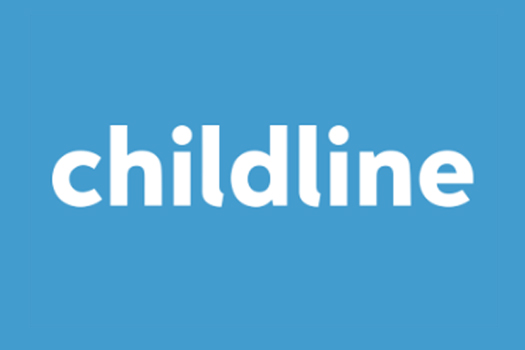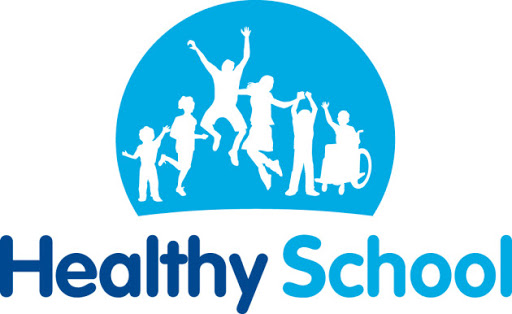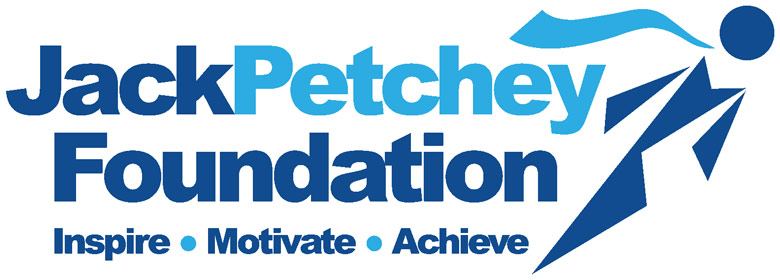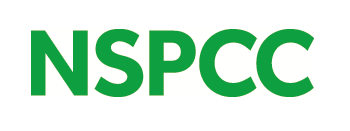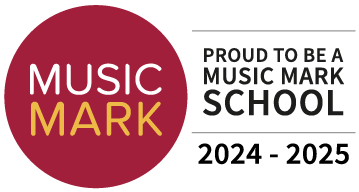
Safeguarding
Students can speak to any member of staff at school about anything that is worrying them.
If there is a concern about a students' well-being or need to report a safeguarding issue, please contact office@winchmore.enfield.sch.uk
|
Head of school |
Jim Owen |
|
|
Designated Safeguarding Lead (DSL) |
Noel Thompson |
Deputy Headteacher |
|
Deputy Designated Safeguarding Leads (DDSL’s) |
Mr Higgs Ms De Souza Mrs Marshall Miss Baptiste Mr Bulbul Mr Joyce Mr Jama Ms Bevan |
Assistant Headteacher Head of Year 7 Head of Year 8 Head of Year 9 Head of Year 10 Head of Year 11 Head of Year 12 Head of Year 13 |
WHAT IS SAFEGUARDING
Safeguarding is the action that is taken to promote the welfare of students and protect them from harm.
Safeguarding means:
-
protecting students from abuse and maltreatment
-
preventing harm to students health or development
-
ensuring students grow up with the provision of safe and effective care
-
taking action to enable all students to have the best outcomes
SAFEGUARDING INFORMATION FOR PARENTS
Parents and carers should be vigilant to any signs that a student might be exposed to safeguarding concerns.
Some common signs a student has been exposed to safeguarding issues include:
- displaying disruptive or anti-social behaviour
- being bullied or bullying others
- having low attendance at school
- being involved in, or at risk of, offending
- having poor general health
- having anxiety, depression or other mental health issues
- misusing drugs or alcohol
- having a particularly challenging relationship with parents/carers
- appearing to be unusually independent of their parents/carers
- experiencing difficulties at home
For more information, visit the NSPCC website.
There are a variety of issues that students could be exposed to.
- Child's sexual exploitation (Child sexual exploitation is a type of child sexual abuse).
- County lines (County lines is the organised criminal distribution of drugs from the big cities into smaller towns and rural areas using children and vulnerable people).
- Peer on peer abuse (Peer-on-peer abuse can take various forms and include bullying, relationship abuse, domestic violence, child sexual exploitation, harmful sexual behaviour, and/or gender-based violence).
- Mental health (Mental health includes our emotional, psychological, and social well-being).
- FGM (Female genital mutilation 'FGM' involves the partial or total removal of external female genitalia or another injury to the female genital organs for non-medical reasons).
- Grooming (Grooming techniques can lead to other types of abuse).
- Sharing of inappropriate images (As students start to explore the Internet, they may come across content that isn't suitable for their age group or that may upset them or worry them).
- Sexual harassment (Sexual harassment is unwanted attention of a sexual nature).
If there is a safeguarding concern about a student, please contact our designated safeguard lead without delay at office@winchmore.enfield.sch.uk This email can also be used for any welfare issues relating to students.
If the school cannot be contacted, please contact Enfield Children’s Multi-Agency Safeguarding Hub (MASH) on 020 8379 5555.
If a student is in immediate danger, call the police on 999 straight away.
E-Safety Links for parents and students
Slides from the E-safety presentation given at Yr 9 Options Evening in March 2017 by Luke Brent-Savage of Education Child Protection Ltd giving hands-on advice about social networking for young people, on-line grooming and cyber-bullying.
Two other really useful and informative websites for parents are Internet Matters - www.internetmatters.org . This is a really good educational site for parents regarding what their children may be doing online and covers a range of ages. The other is the Internet Watch Foundation - www.iwf.org.uk.
SAFEGUARDING INFORMATION FOR STUDENTS
We have a dedicated team of safeguarding staff to support our students.
- A school councillor
- A family liaison officer
- A welfare assistant
- A behaviour mentor
- A designated safeguarding lead
- A safeguarding team
There are a variety of issues that students could be exposed to.
- Child's sexual exploitation (Child sexual exploitation is a type of child sexual abuse).
- County lines (County lines is the organised criminal distribution of drugs from the big cities into smaller towns and rural areas using children and vulnerable people).
- Peer on peer abuse (Peer-on-peer abuse can take various forms and include bullying, relationship abuse, domestic violence, child sexual exploitation, harmful sexual behaviour, and/or gender-based violence).
- Mental health (Mental health includes our emotional, psychological, and social well-being).
- FGM (Female genital mutilation 'FGM' involves the partial or total removal of external female genitalia or another injury to the female genital organs for non-medical reasons).
- Grooming (Grooming techniques can lead to other types of abuse).
- Sharing of inappropriate images (As students start to explore the Internet, they may come across content that isn't suitable for their age group or that may upset them or worry them).
- Sexual harassment (Sexual harassment is unwanted attention of a sexual nature).
Some common signs a student has been exposed to safeguarding issues include:
- displaying disruptive or anti-social behaviour
- being bullied or bullying others
- having low attendance at school
- being involved in, or at risk of, offending
- having poor general health
- having anxiety, depression or other mental health issues
- misusing drugs or alcohol
- having a particularly challenging relationship with parents
- appearing to be unusually independent of their parents
- experiencing difficulties at home
For more information about safeguarding issues, visit NSPCC.
If there is a safeguarding concern about a student, please contact our designated safeguarding lead without delay at office@wincmore.enfield.sch.uk. This email can also be used for any welfare issues relating to students.
If the school cannot be contacted, please contact Enfield Children’s Multi-Agency Safeguarding Hub (MASH) on 020 8379 5555.
If a student is in immediate danger, call the police on 999 straight away.
Talk to someone:
- if you feel upset or worried about anything at all (even if you think it is not important)
- if you feel sad, anxious or unable to cope
- if someone has hurt you physically, emotionally or mentally
- if you feel worried about someone at home
- if you are being threatened or forced to do things
- if someone has done something to you without your consent
- if you feel unsafe in school, at home or on the streets
- about anything else worrying you
Helpful websites and numbers
Childline: 0800 1111
NSPCC help line: 0808 800 5000
The police: (if you are in danger): 999
LGBT switchboard: 0300 330 0630
Kooth: (www.kooth.com) support service for student wellbeing
Multi-Agency Safeguarding Hub: 0300 500 80 90
Barnardos: 0800 008 7005
SAFEGUARDING FOR VISITORS AND SUPPLY TEACHERS
Safeguarding for visitors and supply teachers We welcome all visitors to the school. You are asked to read and abide by the following protocol at all times during your visit. This is protect both you and the children and to ensure that your visit to the school runs as smoothly as possible.
- We ask that you: Pre-arrange your visit to the school, wherever possible
- Report to reception on arrival and do not enter the school via any other entrance
- Follow any parking instructions you may be given, then ensure that your vehicle is locked, and that it is kept locked, at all times while not in use. If you need to use or move the vehicle during your visit, drive with extra caution while on the premises
- Once at the main Reception, explain the purpose of your visit and state who you have come to see.
- You will be asked to produce formal photographic (wherever possible) identification. If you are from an Enfield school you should show your school ID Badge You will be asked to sign in at the inventry at reception on arrival which may include a photograph being taken of you
- A visitors’ badge will be issued to you and you should ensure that you wear it, displayed prominently, at all times
- You will be asked to wait in the reception area until you are met by an appropriate member of staff to be escorted to your destination
- Unless it is a legitimate part of your visit to the school, if you find yourself alone with pupils/children, you should report to a member of staff or reception
- Do not wander around the school unnecessarily and always follow instructions for moving from one area to another should you need to do so
- Ensure that your mobile phone is kept on your person at all times and switch it to silent whenever possible, and particularly if in the presence of pupils/children; you are also asked to ensure that neither your phone nor any other equipment you may have with you can be accessed by pupils
- Always use appropriate language and behaviour with pupils/children and adults
- Do not smoke on the school premises or anywhere when with pupils/children
- Ensure that you read and/or follow any other protocols or policies that may be given to you, or drawn to your attention, by the school, for example in relation to child protection/safeguarding and health and safety
- Ensure that you are aware who you should refer to within the school if you have any concerns
- On departing the school, you will be asked to leave via reception, sign out of the building using the inventry, return your visitor badge and be seen to leave the premises.
SAFEGUARDING HELPFUL PHONE NUMBERS AND WEBSITES
Safeguarding contacts
If there is a concern about a Winchmore School student, please contact the school on 0208 3607773 or email the DSL at office@winchmore.enfield.sch.uk .
Helpful numbers and websites
Childline: 0800 1111
NSPCC help line: 0808 800 5000
The police: (if you are in danger): 999
LGBT switchboard: 0300 330 0630
Kooth: (www.kooth.com) support service for students wellbeing
Multi Agency Safeguarding Hub: 0300 500 80 90
Barnardos: 0800 008 7005
Talk to someone:
- if you feel upset or worried about anything at all (even if you think it is not important)
- if you feel sad, anxious or unable to cope
- if someone has hurt you physically, emotionally or mentally
- if you feel worried about someone at home
- if you are being threatened or forced to do things
- if someone has done something to you without your consent
- if you feel unsafe in school, at home or on the streets
- about anything else worrying you
HOW TO REPORT SAFEGUARDING CONCERNS
If there is a concern that a student is being harmed, is at risk of harm, or a disclosure has been received (intentionally or unintentionally) it must reported to a member of the safeguarding team immediately via the school office. Email your concern to office@winchmore.enfield.sch.uk as soon as possible.
Both of these actions must be carried out.
SAFEGUARDING HELPFUL PHONE NUMBERS AND WEBSITES
Safeguarding contacts
If there is a concern about a Winchmore School student, please contact the school on 0208 3607773 or email the DSL at office@winchmore.enfield.sch.uk .
Helpful numbers and websites
Childline: 0800 1111
NSPCC help line: 0808 800 5000
The police: (if you are in danger): 999
LGBT switchboard: 0300 330 0630
Kooth: (www.kooth.com) support service for students wellbeing
Multi Agency Safeguarding Hub: 0300 500 80 90
Barnardos: 0800 008 7005
Talk to someone:
● if you feel upset or worried about anything at all (even if you think it is not important)
● if you feel sad, anxious or unable to cope
● if someone has hurt you physically, emotionally or mentally
● if you feel worried about someone at home
● if you are being threatened or forced to do things
● if someone has done something to you without your consent
● if you feel unsafe in school, at home or on the streets
● about anything else worrying you

Too many children in the UK are not getting the support they need to grow up safe and happy. We’re here to put this right.
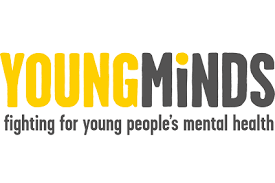
Whether you want to understand more about how you’re feeling and find ways to feel better, or you want to support someone who’s struggling, we can help.
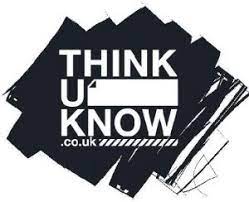
Thinkuknow is the education programme from NCA-CEOP, a UK organisation which protects children both online and offline.
![]()
We keep you up to date with the games, websites and apps that children are currently using.

Too many children in the UK are not getting the support they need to grow up safe and happy. We’re here to put this right.

Bullying UK, part of Family Lives, is a leading charity providing advice and support to anyone affected by bullying.

Are you worried about online sexual abuse or the way someone has been communicating with you online?

Online safety leaflets & Resources See our free e-Safety leaflets and resources available to download and share.

We help victims of child sexual abuse worldwide by identifying and removing online images and videos of their abuse

Government advice and trusted resources for schools to safeguard students from radicalisation, build resilience to all types of extremism and promote shared values.

Enfield Educational Psychology Service. The Educational Psychology Service (EPS) is a joint service with the Schools Emotional Wellbeing Service (SEWS) and has a strong relationship with CAMHS and other partner agencies

Kooth is your online mental wellbeing community. Access free, safe and anonymous support
National Online Safety
As part of our #WakeUpWednesday campaign, we have created a free guide for parents & carers for your school to share about ‘Playerunknown's Battlegrounds’ (PUBG) – a game played by millions of children and young people worldwide.
Our guide is designed to inform parents and carers about the dangers and risks of letting their children play PUBG and how they can help keep their children safe online.



